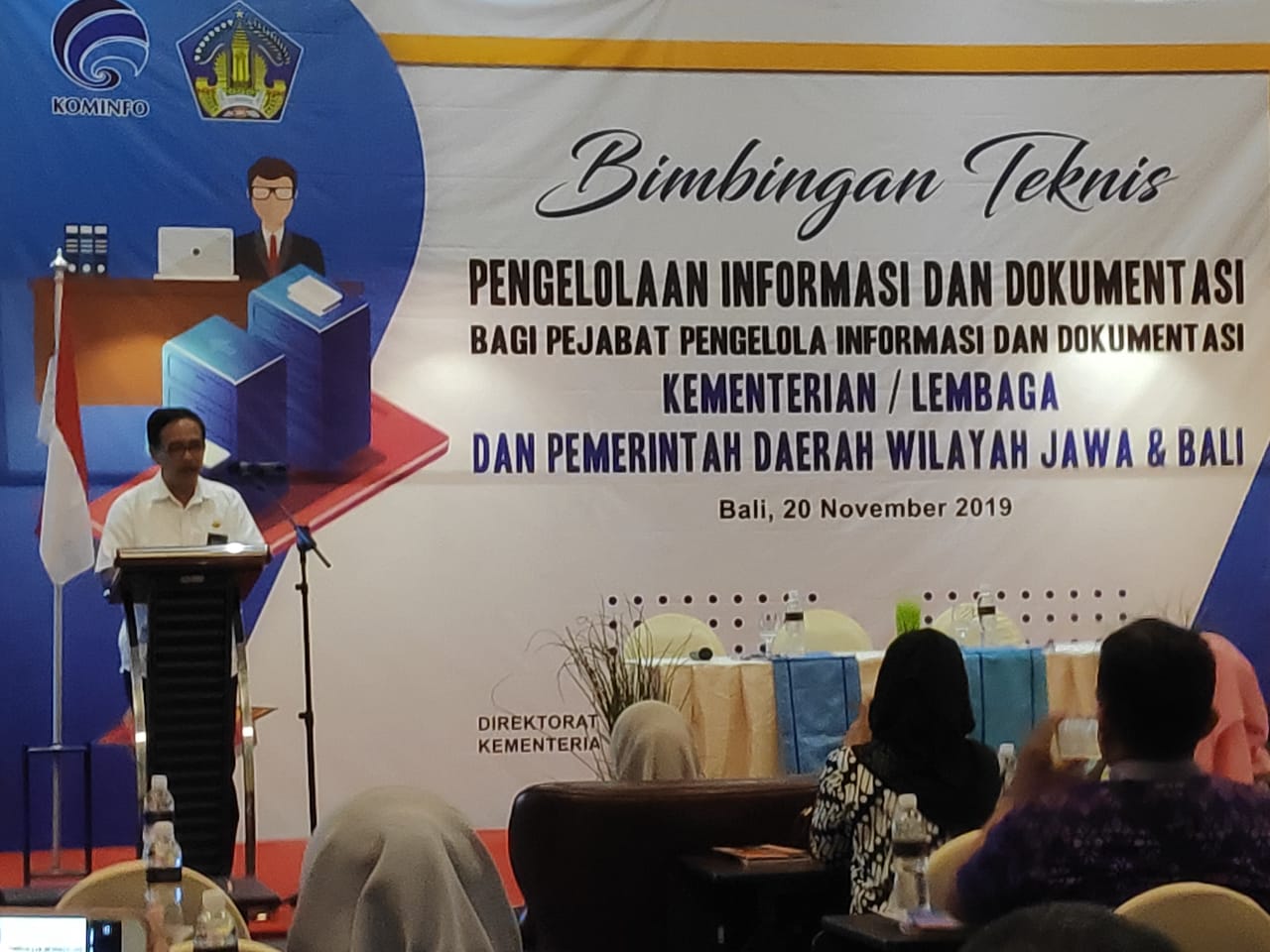Bali, Geospatial News - Information openness in the digital era is now one of the things that are common in government circles, In dealing with digital industry 4.0 Ministries of Institutions and Local Governments must be prepared with the phenomenon of movement of information that is very fast dynamic and can change in an instant.
For this reason, the Ministry of Communication and Information has organized technical information and documentation management guidance activities for information and documentation management officials at the Ministry of Institutions and Regional Governments.
Located in Kuta Bali, the activity that took place on 20 November 2019 was attended by dozens of Ministries and Institutions and Regional Governments relating to Information Management and documentation (PID).
Geospatial Information Agency (BIG) as one of the Non-Ministry Government Institutions (LPNK) realizes that Public Information Openness and management of information and documentation are very important concerns, therefore BIG is always committed to openly managing and distributing Public Information.

Selamatta Sembiring Director of Public Governance and Communication of the Ministry of Communication and Information of the Republic of Indonesia said that based on law number 14 of 2008 regarding Public Information Openness, it is clear that all government agencies must manage to optimize and disseminate information and documentation that are entitled to be known by the public in accordance with laws and regulations. invitation.
"PPID is one of the driving forces for information disclosure in the digital era, therefore the management of optimization and dissemination of ppid in all central and regional agencies becomes an important point in the process of communication between the government and the community". said Sembiring.
In addition, the main objective of this technical guidance activity is to increase the understanding and competence of the State Civil Apparatus (ASN) in the central and regional government environment so that they can follow the development of information and technology flows and the cultural movements of the community in managing and publishing government information and documents. (/ AR).
